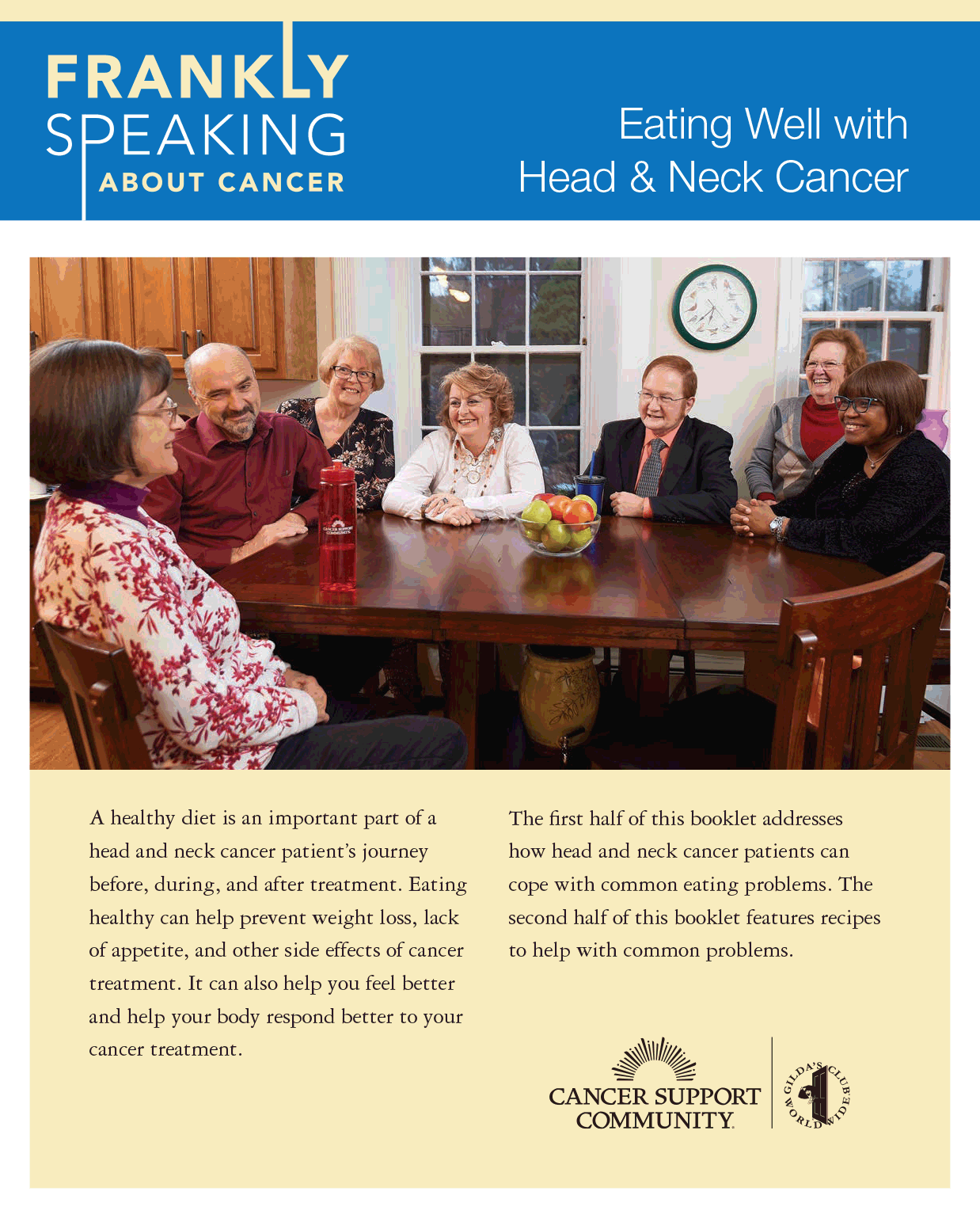Nutritional Management During Head and Neck Cancer Treatments
Individuals being treated for head and neck cancer face unique and sometimes very difficult, challenges eating and maintaining a healthy nutrition level during treatment. Treatments for head and neck cancer can cause side effects including weight loss, fatigue, nausea, diarrhea, constipation, low blood counts and increased risk of infection.
These side effects can inhibit patients’ ability to stay nourished and interfere with treatment. In addition, depending upon the treatment plan, patients may experience discomfort and pain in chewing and swallowing, as well as loss of taste.
The Head and Neck Cancer Alliance provides the following recommendations to help patients maintain healthy nutrition during cancer treatment.
THINK “SOFT” DIET
- With the oral, head and neck cancer diet, opt for soft and moist foods, which can help alleviate some of the painful side effects of eating during and post treatment.
- Invest in a blender to puree fruits and vegetables, and create soups.
MAINTAIN HYDRATION
- Be sure to drink plenty of water and liquids to minimize dry mouth symptoms.
WHIP UP PROTEIN SHAKES
- Add plenty of protein in your diet to help to meet nutritional needs.
- Make shakes or smoothies out of protein powder, low-fat milk, soy milk, or rice milk, and add a flavorful fruit.
- Look for a protein powder that contains whey.
ADD CANCER-FIGHTING FOODS
- High levels of phytochemicals from plants build up the immune system and help fight infections, eating plenty of fruits and vegetables is beneficial.
- Red berries and green tea are beneficial in a cancer-fighting diet.
CONSIDER FISH OIL
- Fish oils contain fatty acids that are an important part of the oral, head and neck cancer diet.
- Fish oils come in liquid or capsules.
- Fish oils contain natural anti-inflammatory properties.
- Fish oils promote healing and help maintain weight.
AVOID FOODS THAT CAUSE DISCOMFORT
- Cut out foods that are sharp and crunchy and require a lot of chewing.
- Limit foods that are spicy or acidic, as they can cause mouth pain.
- Rule out drinks or foods that contain alcohol.
Discuss Nutritional Supplements with your Doctor
- Vitamin supplements, especially vitamins D and B, are important.
- Zinc may stimulate taste, which is important in the oral, head and neck cancer diet.
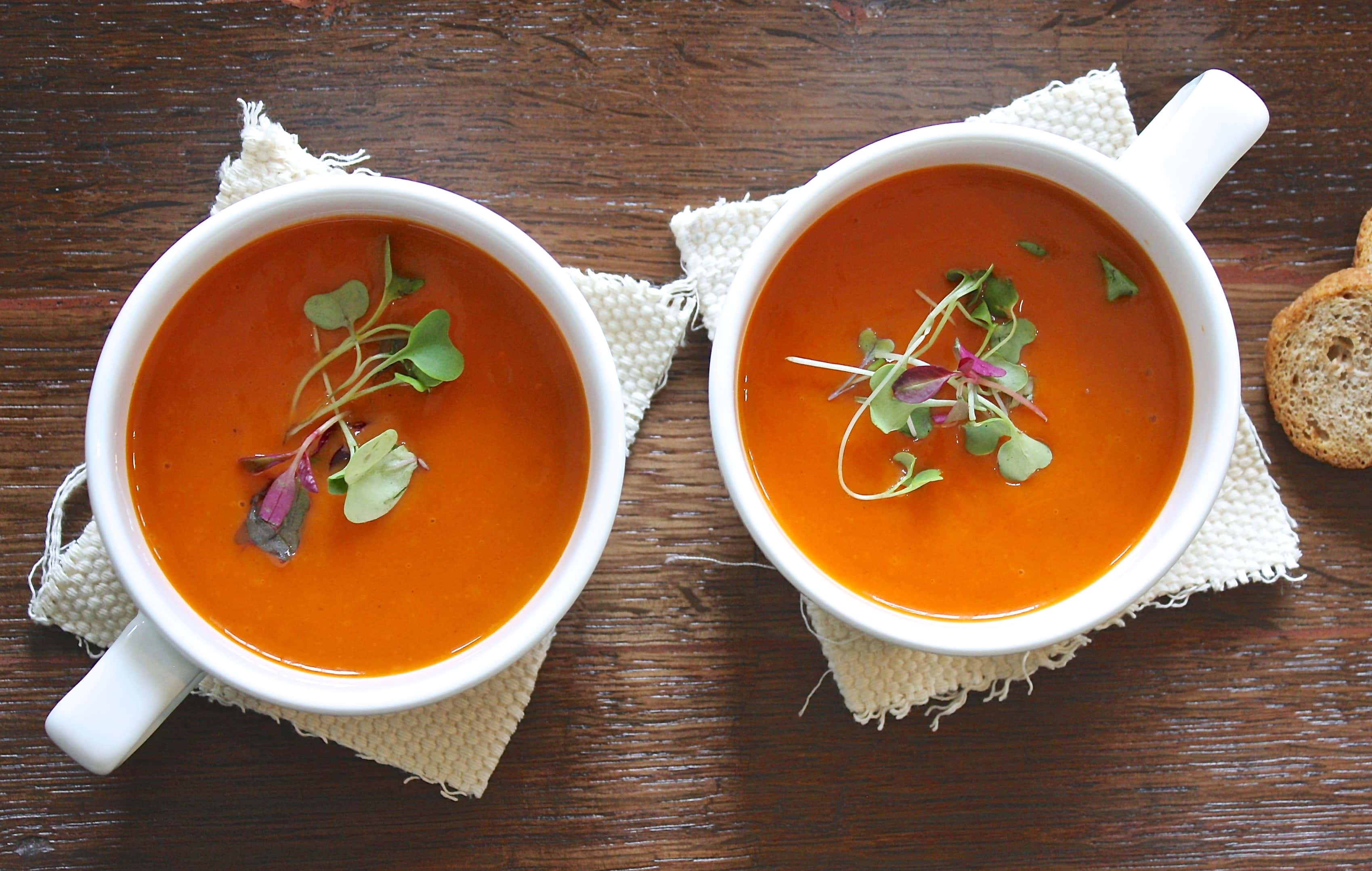

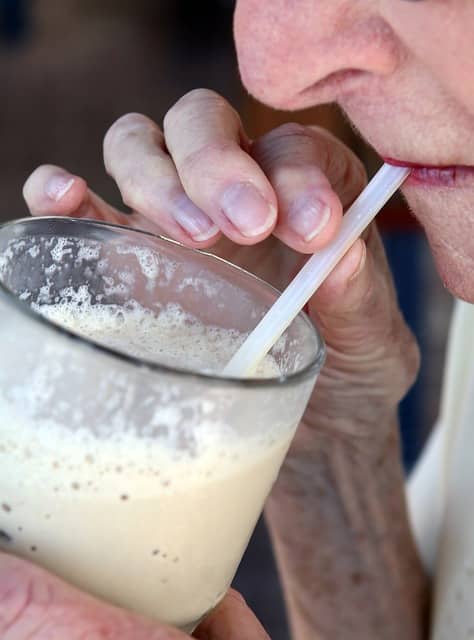

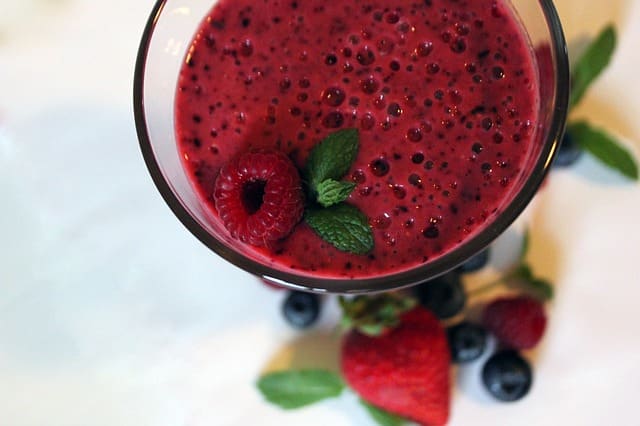


Eating Well with the Cancer Support Community:
For more information on maintaining healthy nutrition during treatment and recovery, we recommend Eating Well with Head and Neck Cancer, provided by Cancer Support Community.
To order a print copy of the booklet, click here
The Cancer Support Community also has a variety of video recipes for individuals who have certain eating problems and can be found here.
Online Recipe Cards:
The HNCA is offering some simple online recipes that head and neck cancer patients, survivors and/or caregivers can try at home.
Online Cookbook: Healing & Easy Eats
HNCA’s 2nd Edition Cookbook Now Available Online
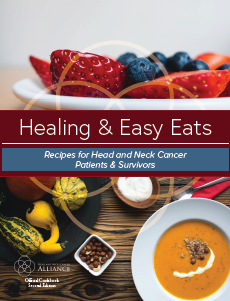
HNCA is proud to the second edition of our cookbook, Healing & Easy Eats that offers some delicious options for patients and survivors.
Your Cancer Story
Your Cancer Story (www.YourCancerStory.com) serves as a central hub for those living with cancer and their loved ones as they take an active role in addressing the emotional, nutritional and communication needs of their cancer journey.
Your Cancer Story offers an online Nutrition Guide with practical tips on staying healthy through one’s cancer journey.

